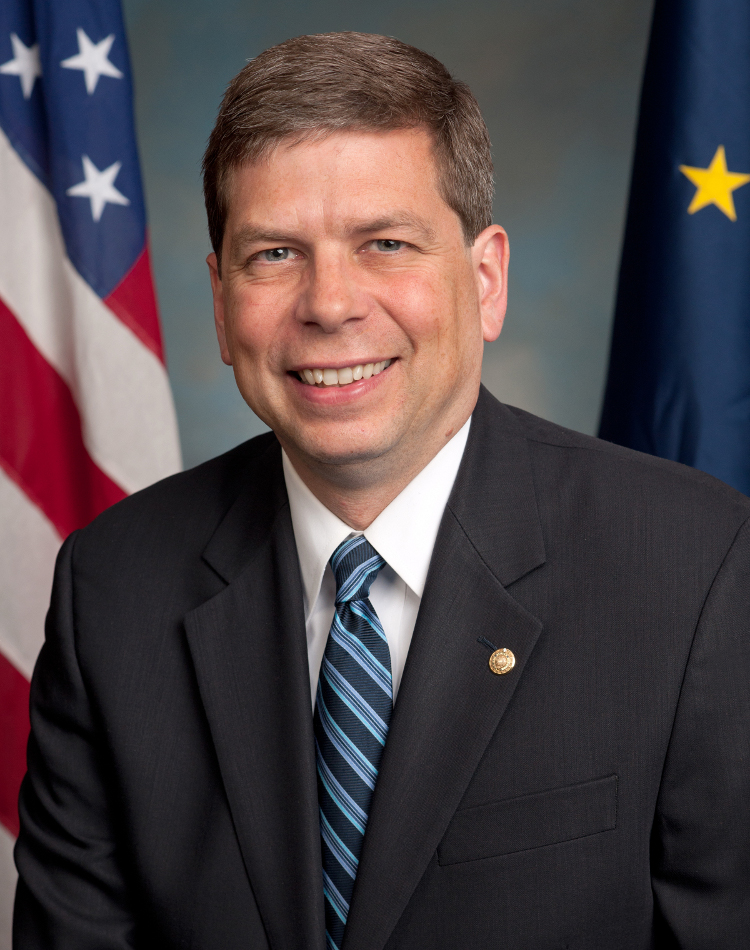
The next U.S. Senate race in Alaska is still 18 months away. A number of Republicans have jumped in the race, or are publicly mulling taking on Senator Mark Begich in November 2014.
But, they’re likely to have a long, drawn out primary campaign first.
Virtually everyone in Washington agrees the Republicans need to win Alaska to take back control of the Senate. It’s one of the six most closely watched races.
So far the only official challenger to Begich is Joe Miller. Miller, who beat Senator Lisa Murkowski in the 2010 primary but lost in the general election, filed his intent to run May 2.
“It is an election against the president, but broader than that, it’s an election against DC. DC has turned its back on the American people,” Miller said.
Republicans plan on tying Begich to the national party. He serves in the Democratic leadership of the Senate.
The National Republican Senatorial Committee – the wing of the GOP tasked with winning the Senate – is trying to make the 2014 race about President Barack Obama’s health care bill. That law was largely upheld by the Supreme Court.
But many across the country are deeply skeptical of it.
Senator Begich does not shy away from his vote for the bill, he likes to highlight popular elements of it.
“Preexisting conditions are no longer reasons to deny insurance, seniors are going to get better reimbursements on prescription, the Alaska Native Healthcare System was finally reauthorized after 19 years of pending in the US Senate and House,” Begich said. “Now it’s permanently reauthorized.”
Jennifer Duffy is senior editor at the Cook Political Report, a nonpartisan newsletter that analyzes races. She says early signs show the 2014 race will play out like most midterm races with low turnout, and the party out of power gets more voters to the polls.
“Obviously one of the things we’re going to be looking at is what Democrats are going to do to help Senator Begich put together the kind of voter identification and get out the vote program that was so helpful to President Obama in 2012,” Duffy said.
Duffy says one major voting bloc to watch will be Alaska Natives – a group that assisted Senator Lisa Murkowski’s write in victory. For his part, Miller says he’s working on Alaska Native outreach, and plans on having a stronger rural election strategy this go around.
Miller would need to win the Republican primary to face Begich. That’s not until August 2014. And he won’t have an easy path.
Lieutenant Governor Mead Treadwell will make his decision in June. He says he’s intensified his exploration of a run since Governor Sean Parnell said he’ll seek reelection.
Treadwell cannot run concurrently for Lieutenant Governor and Senate.
“I’ve certainly enjoyed serving as Lieutenant Governor. I’ve worked hard to help the governor’s agenda. I believe we’re on the right track in being more competitive and attracting industry to the state, long term jobs to the state.”
So he says the remaining big issues are federal.
“Our biggest problem is access to our land, and in Washington, I’m not sure we’re getting the results we need to get,” Treadwell said.
That’s an argument every candidate – and would be candidate makes: Begich, Treadwell, Miller, and Resources Commissioner Dan Sullivan, who’s rumored to be mulling a bid as well.
Miller says Alaska’s resource development will be the theme of his campaign, despite the commonalities with the others.
“Well I think there are a lot of similarities on resources. I don’t think there’s much doubt about that,” Miller said.
He his unwillingness to vote for the heads of agencies that regulate federal land sets him apart.
Whoever wins the GOP primary will face a well-financed Begich. He’s sitting on more than $1.5 million cash on hand. Miller has a little more than $400,000 – and he’s just now starting to fundraise. He didn’t take in any donations in the first quarter of this year.
By all accounts, Begich is a prolific fundraiser. He says he averages two to three hours on the phone every day asking for money:
“In this world we have to be realistic about the amount of resources you need to run. And I have no problems picking up the phone and asking people for help and support.”
And in the era of more lax campaign finance laws, that will be more important than ever. Begich cannot assume whoever survives a long, bruising GOP primary will be too beaten to win the general election, because any outside group can come in and prop up any candidate.
